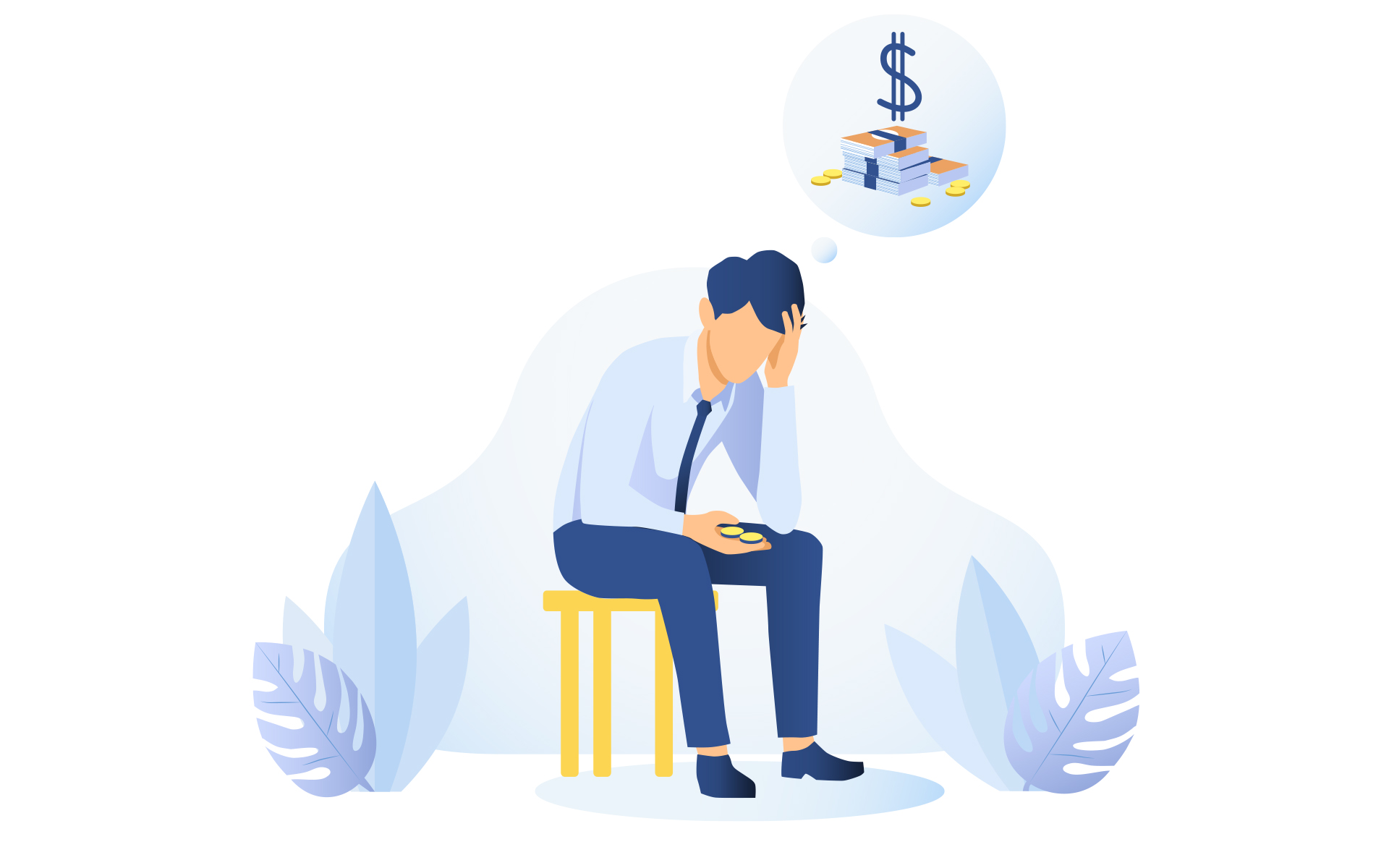Are you feeling the effects of this pandemic on your finances? Join the club. The loss of employment or income, the need to financially support family members or friends, the fear of money matters getting worse, and even the shame of having plenty while others suffer—all of these things cause stress. While money has always been a source of instability, in our lifetimes we have never experienced this level of uncertainty and stress. And that is why you might never have a better opportunity to cultivate a mind that is more resilient to the ups and downs: of money, and all things that come and go throughout our life.
Let’s start with an awareness of our cultural conditioning around money: that is, we tend to want more and to expect all things measurable (like money) to increase. Although we’re taught that these expectations are normal and reasonable, obviously, it isn’t so. This is our momentous opportunity to examine these beliefs and let them go.
Instead of pining for more, perhaps we can feel that we have enough. I’ve often said “enough” is the dirtiest word in the English language. Have you ever said that you have enough money, time, etc?
Enough brings us into this moment, this breath. It’s not about enough in the past or future; it’s sensing enough now.
And yet, we’re already experiencing it: Those of us who are still healthy and able to take a (socially distanced) sunset walk feel, perhaps, more grateful than we ever have for life’s simple, and free, pleasures. Besides, we’re all reflecting on how much we used to spend on things that no longer seem important. Why did I eat out or travel so much? Why did I buy all those clothes I don’t wear? Why wasn’t I more generous?
This is a time for embracing what we have. In the former, pre-COVID world of “More is always better,” this wasn’t permissible. When asked how much is enough, John Rockefeller, the world’s first billionaire, answered “just a little bit more”. But enough brings us into this moment, this breath. It’s not about enough in the past or future; it’s sensing enough now.
Call me crazy, but I am grateful for the lessons I’m learning during this pandemic. The conditions are as perfect as they will ever be to take on the practice of “enough.” Sheltering in place allows us to more easily turn our attention inward, away from the outward sources of security, such as clothes, cars, and vacations (material things and goals that have habitually stimulated our wanting mind). FOMO (fear of missing out), thankfully, has decreased significantly. With fewer spending options, and less social exposure to our “wanting” culture, I’m finding it easier to say the word “enough,” and really feel that I might actually have enough, that I am enough.
Here’s a 12-minute practice that acts as the antidote and vaccine for current money stress. It’s a timeless practice, but experience it now, while the conditions are ripest. You’ll probably want to spend about one minute on each step of the practice.
Diffuse Financial Stress: The Enough Practice
12-Minute Practice to Remember You Are Enough
1. Sit in an upright (but not uptight) position and feel your heart muscle pumping nourishment to your priceless brain and limbs. Notice the pulsations from the top of your head to your toes.
2. Feel the texture of your breath firing up your blood. Feel the breath throughout the body.
3. Feel your gratitude for your heart, lungs, and brain. Recognize the value that these bring you. Any amount of additional money, degrees, friends, or possessions pales in comparison. Regardless of life circumstances, your heart, lungs, and brain comprise the 3-cylinder engine for your life ahead.
4. Become aware of any money fears and fantasies, welcoming these thoughts with kindness, instead of judgment. Tell yourself: I accept myself and all my money fears/fantasies, and I forgive myself for any unfavorable past money decisions. The recognition of the bodily felt emotions before and after offering self-compassion and forgiveness can be very liberating.
5. Knowing that striving and aversion cause stress, see if you can befriend whatever is true about your money situation in this moment. Offer the words your grandmother or another trusted elder might say about your current finances. “You’re OK as you are, you have enough.”
6. Imagine in your mind’s eye that what you have today is enough, and that what you bring to the world is enough. This one might feel like a stretch; it’s a retraining of the tendency of our mind to focus on scarcity. Practicing this with a strong and loving intention will start to loosen the allegiance to scarcity.
7. Become aware of sensations and emotions as you contemplate that you are enough, just as you are. This contemplation may produce a range of feelings from fear to joy, but know that any discomfort might be the mind’s way of trying to protect the familiar wanting mind. Sensing your enoughness is your ultimate security. From this fertile ground of your enough mindset, wisdom gains strength to move you into purposeful and beneficial actions. Let your mind be quietly receptive to any insights that percolate. This is the quality of mind that brings wisdom, success, and ease to your finances.
Sense how this awareness of enough is with you wherever you go, ready to serve you, regardless of the uncertainty and volatility present in our financial lives. We are immune to money stress when we’re aware of being enough.
There’s something bigger, more immunizing and humanizing, deeply nourishing, and sustainable than anything money could bring us. It is the attention you bring to each moment in which you sense and embody that you do, are, and have enough.
read more
Making Friends with Difficult Emotions
Cultivating a clear awareness of our inner world during moments of strong emotion is a powerful, portable way to step back from the activation, find our calm, and discover a right way forward.
Read More
How Your Mindfulness Practice Can Support the World Right Now
Mindfulness equips us for times when we’re asked to listen and act. Here are three ways you can bring your practice to moments of social unrest.
Read More
5 Lessons to Remember When Lockdown is Lifted
If we remember the importance of resilience, gratitude, and doing with less, we can move forward with a new sense of purpose.
Read More









